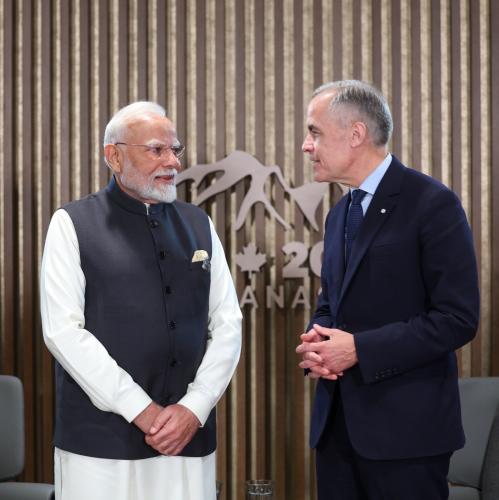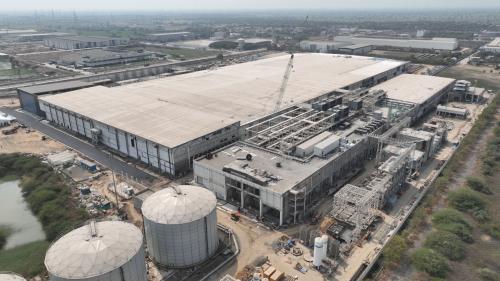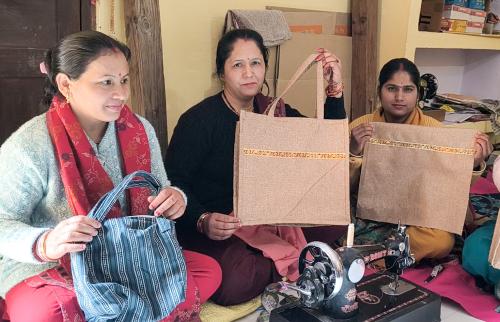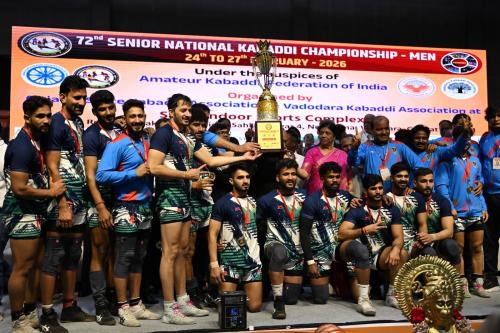Gangadevipalli, Telangana: A life-size statue of Mahatma Gandhi and a 15-foot-long stupa painted red with hammer and sickle at the top symbolize the spirit of Gangadevipalli, a small village in Warangal district of Telangana. Once dominated by Maoists, Gangadevipalli was like any other disturbed village in the state. Even now, almost the entire village is influenced by CPI(M) ideology. However, it attracted the attention of Prime Minister Narendra Modi who made a proud mention of it in his radio program Mann ki Baat in the first week of March. The reason: a couple of weeks before the radio program, senior IAS officer Parameshwaran Iyer, who heads the Swachh Bharat Mission, accompanied by 40-odd IAS officers from across the country, visited the village only to learn that the Communist-dominated village had achieved the objectives of the mission almost 15 years ago by implementing the twin-pit technology for toilets. To display how effectively the villagers were following the technology, he himself got down into a toilet pit and removed the dried-up faecal matter. In the twin pit technology, each toilet consists of two holes that are dug up and cemented. Once the first pit is full, the villagers use the second pit. The first pit is closed and the faecal matter in it gets decomposed, dries up and turns into manure. After six months, the first pit is emptied and can be used again by the time the second pit gets filled up. Not just this, Gangadevipalli village on Narsampet Road, about 20 km from Warangal town, is a real smart village in all other aspects. The village, which has 360 households with a total population of around 1,400, has many achievements to boast about, as indicated by a board at the village gram panchayat office -- 100 % prohibition, 100% house tax collection, 100% literacy, 100% school-going children, 100 % construction of toilets, 100% in small savings etc. Right from the village entrance, all lanes and by-lanes have cement-concrete roads with well-laid sewerage lines on either side. All streetlights are solar-powered with photo-voltaic systems. There are closed circuit cameras at strategic locations, which are monitored from the gram panchayat office round-the-clock. “We have Any Time Water (ATM) machine, which dispenses 20 litres of drinking water for just Re 1. If anybody wants more, they have to pay an extra Rs 4 for another 20 litres. The machine dispenses water with the swiping of a smart card,” Pendli Malla Reddy, president of water committee in the village, said. The village follows family planning norms with each family having a maximum of two children. “We have as many as 26 committees to look after developmental and welfare activities in the village such as for implementation of prohibition, solving of youth issues, women’s issues, widow issues, artisans issues, recovery of loans, sanitation and even prevention of usage of plastic. Even for power supply monitoring and maintenance of dish antennas, we have separate committees,” said Malla Reddy. Dooda Saroja, who looks after the small savings committee, said all the women in the village are part of self-help groups and save their money, which is distributed as loan among themselves. “All of us have bank accounts and we mostly operate online,” she said. According Medida Sushila, who heads the widows committee, consumption of liquor is strictly prohibited in the village. “We don’t have liquor outlets in the village nor do we entertain any booze parties here. Luckily, all the men in the village are cooperating in this aspect,” she said. Warangal (Rural) collector Prashant Jeevan Patil said Gangadevipalli has become a model village not just for Warangal, but the entire country in the implementation of twin-pit toilet technology. “Now, the model is being replicated all over Warangal district,” he said.
Telangana village scores perfect 100 in literacy, prohibition, toilets
- by Rinku
- March 27, 2017 2 minutes
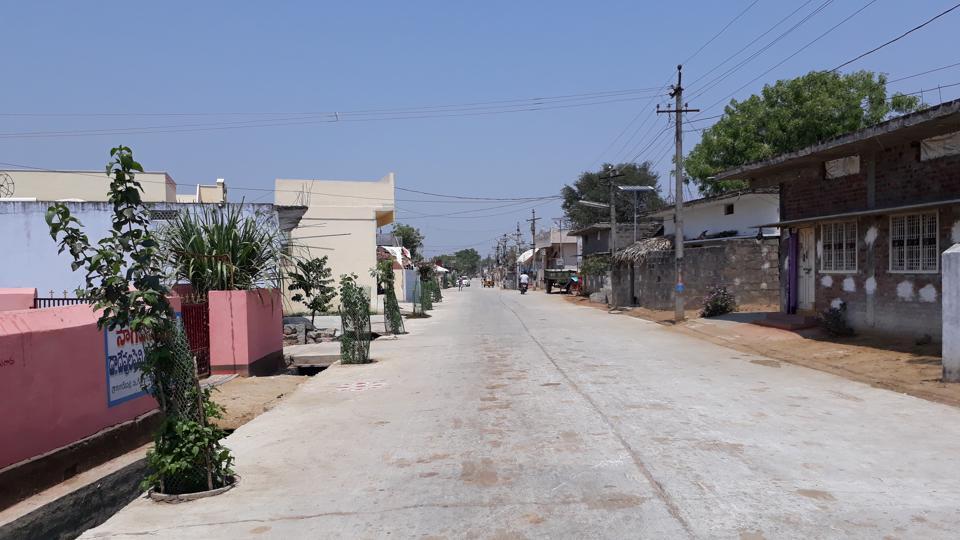
Telangana village





